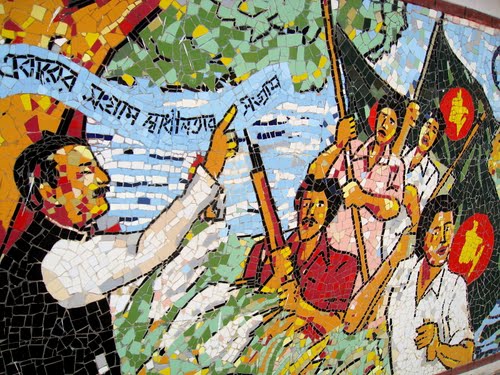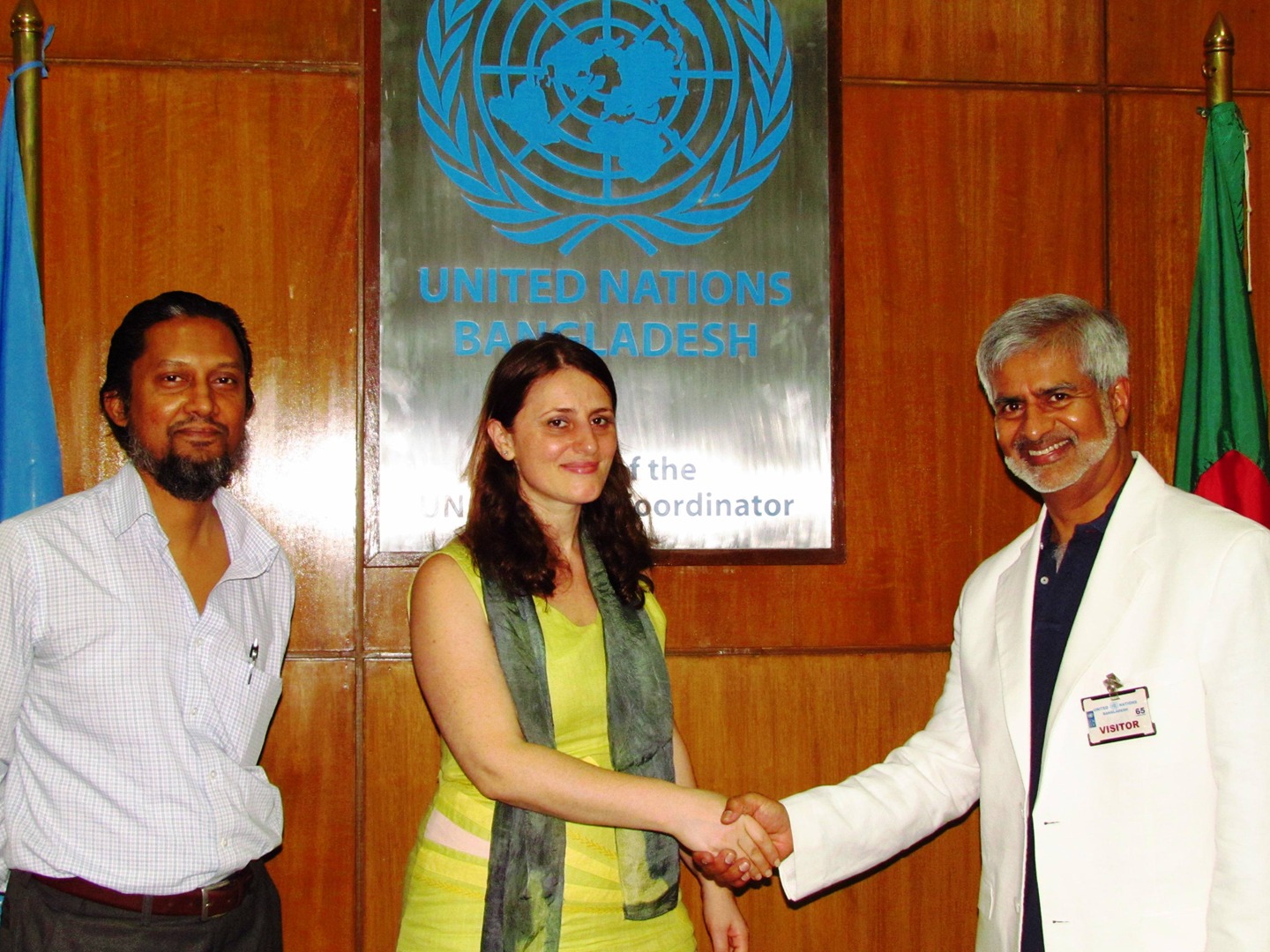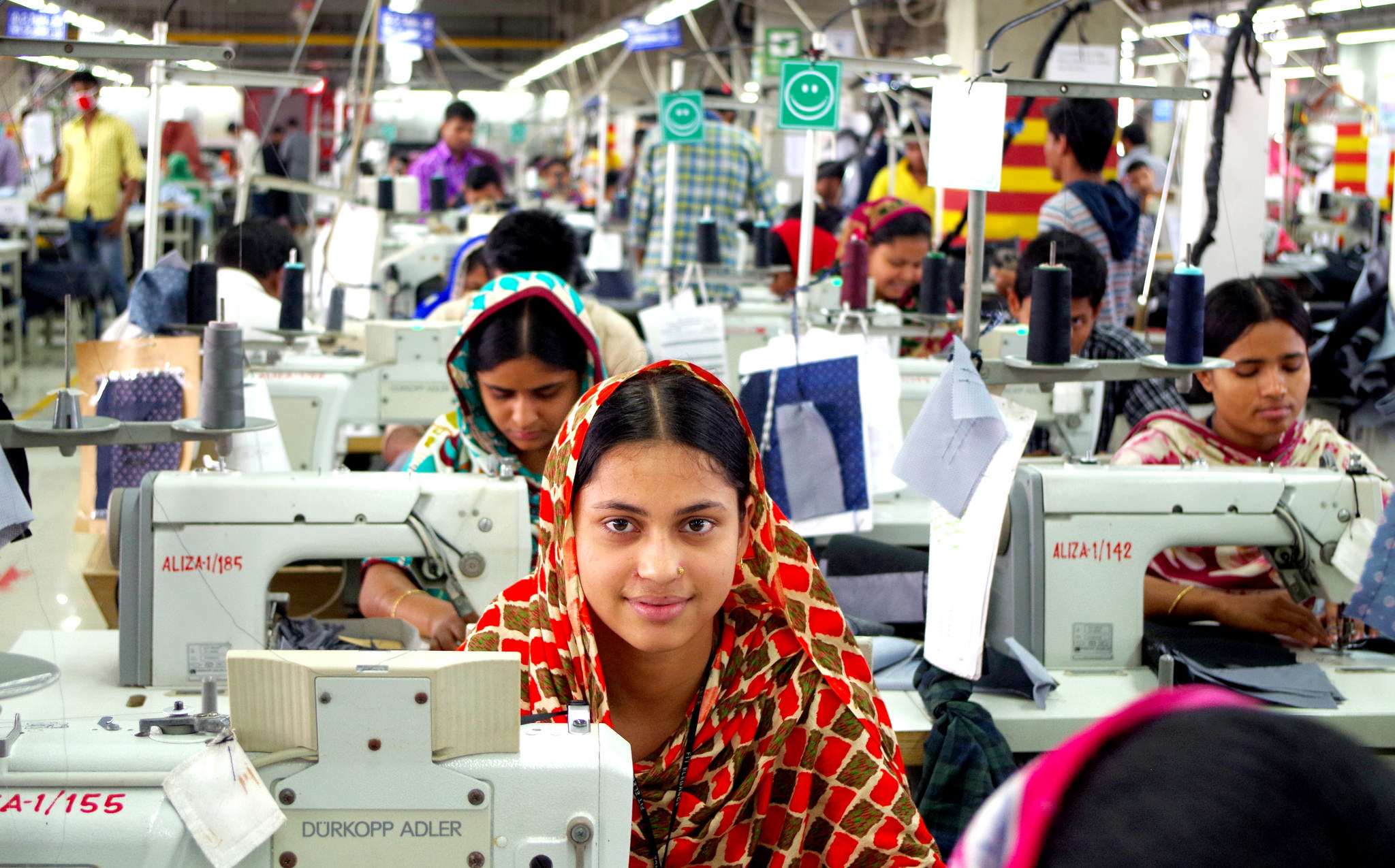On the day when the declaration of Independence (26th March 1971) from the oppressor Pakistan is commemorated in the South Asian country, we take some time to reflect on the geopolitical situation of the small nation.
Bangladesh has a young economy in regular and constant growth, over the decades the country has modernized, reducing the pockets of poverty and raising a widespread urban middle class. The economy of the country, while retaining a strong primary sector (agricolture), is increasingly dependant on the secondary sector, that is industry, with large industrial areas dedicated to textiles, clothing, garments but also pharmacology and more.
After the independence from Pakistan in 1971, Bangladesh initially chose to become a socialist-like People’s Republic, forging strong ties with USSR, China but also good relations with the United States. In fact, this young nation has adopted a system of state protectionism on finance and banks, but left the market free, which with capitalist, sometimes savage, methods, has made the country exponentially grow. Remittances from migrant workers are important and predominant, while the “pietistic industry” generates an appreciable turnover which translates into a parallel economy of salaries paid by supranational agencies and NGOs, to the benefit of officiers and employees of the several international organizations, who benefit from thousands of dollars salaries a month and an incredible standard of living.
The effect of this policy brings a considerable and discrete presence of Chinese businessmen, banks and companies, sided by the US presence, with a significant volume of business in textiles and clothing. Interesting the presence of a small military base with about 300 American marines and their families, in the area facing the US Embassy, despite the country is practically twinned with the People’s Republic of China. The US ambassador in charge is often a “counselor” and “solution maker” in many internal matters.
In recent weeks, Bengali economic experts have expressed concern about the commercial war (part of the New Cold War) between the American and Chinese superpowers. Fearing, rightly, the risks of the negative impact for the mutual custom duties that could crush Bangladesh. Regarding the custom duties, Professor Mustafizur Rahman, executive director of the Center for Policy Dialogue (CPD), said: “One of the negative results will be the impact on the bargaining of the World Trade Organization, this will really affect Bangladesh as a member WTO. As a result, an increase in custom duty on any product exported from Bangladesh will have a negative effect. Now that the United States has increased import duties on Chinese products, this will also have repercussions on Bangladesh.”
We recall here that for the raw materials needed in textile, from needles to cotton for yarn, Bangladesh is COMPLETELY DEPENDENT on China. The European Union has for years been applying a General System of Preference (GSP) for Bangladesh, meaning that all goods exported from Bangladesh are Duty Free in the EU. This also extends to products partially made with Chinese materials. The US has almost always reserved a GSP for Bangladesh in its history. Now that Trump is “erecting walls” against the Chinese goods, this will likely affect or cancel the General System of Preference applied to Bangladesh.


